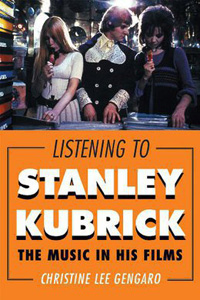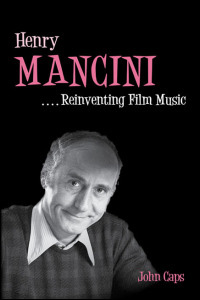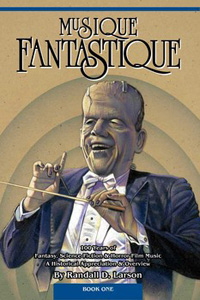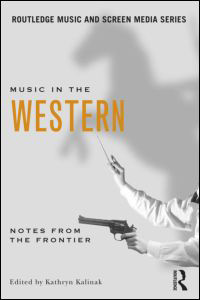

  |
|
|
||||||||||||||||||||||
|
FMS FEATURE... December 17, 2012 The Subject is Film Music A literary roundup for 2012 by Jon Burlingame Several new books on the subject film music have been released in recent months. Here is a review of some of the best:  Los Angeles musicologist Gengaro turned every stone to learn everything she could about Kubrick's attitude toward music and his collaboration with composers from Alex North to Leonard Rosenman to Wendy Carlos; she investigated Kubrick's archives in England and interviewed surviving composers including Gerald Fried (Paths of Glory) and Jocelyn Pook (Eyes Wide Shut). The book combines reportage and commentary, with useful background on every single classical piece (as well as the original scores in the early films) used in all 13 Kubrick features. Especially interesting are previously unknown early overtures for Nino Rota and Dominic Frontiere to adapt music for Barry Lyndon, and the fascinating evolution of music for The Shining. The text is surprisingly accessible, and will enhance the reader's appreciation of Kubrick's musical choices on subsequent viewings of the films.  The result is a terrific companion piece for Mancini's 1989 autobiography (Did They Mention the Music?), which tells his own story but spends very little time on the music itself. Caps spent decades tracking down details of Mancini's 1950s work at Universal, finding rare concert works, and thinking seriously about a career that had unjustifiably been dismissed by many critics as consisting mostly of light romantic comedies. In fact, Caps argues, there is far more range to Mancini's career: the dramatic music of Experiment in Terror, Wait Until Dark, The Molly Maguires, The White Dawn and Lifeforce, for example. Caps blows the disgraceful Hitchcock's Music book out of the water with his well-researched, incisive analysis of Mancini's rejected Frenzy score and reveals hitherto unknown details about a Major Barbara musical that Mancini attempted with lyricist Leslie Bricusse.  The first volume, now out in paperback, examines the field from 1900 to 1959, including such landmark scores as King Kong, The Bride of Frankenstein and Universal composers Hans J. Salter and Frank Skinner; individual chapters on Miklos Rozsa (Jungle Book), Roy Webb (Cat People) and Dimitri Tiomkin (Lost Horizon); and substantial chapters on 1950s sci-fi and television music (including Twilight Zone, Star Trek and the Irwin Allen series). The author functions as both reporter and commentator, having interviewed dozens of these composers – most of whom are now gone – and viewed literally hundreds of these genre pictures to present descriptive portraits of often obscure or underrated scores. Subsequent volumes promise attention to the 1960s (including Bernard Herrmann), the '70s and '80s (including John Williams and Jerry Goldsmith) and the '90s to date.  Title songs from 1950s Westerns, Dimitri Tiomkin's The Unforgiven, saloon songs in Wild Bill, and contemporary approaches in There Will Be Blood and No Country For Old Men, are among the essays in this volume. Of greatest interest are Ross Care's surprising piece connecting Walt Disney's Pecos Bill and John Ford's Wagonmaster; Mariana Whitmer's excellent overview of Jerome Moross' landmark score for The Big Country; and Charles Leinberger's look at Ennio Morricone's "Dollars" trilogy of the 1960s. Whitmer undertakes a book-length examination of the Moross score in Jerome Moross' The Big Country: A Film Score Guide (Scarecrow Press, 200 pp., $35), certainly the most thorough and comprehensive look at the 1958 score ever published. Her discussion of Moross' pre-Hollywood career and analysis of the Oscar-nominated music include numerous score excerpts and many quotes from the composer himself drawn from interviews he gave over the years. ©2012 Jon Burlingame |
Search
Past Features
Feature Archives
|